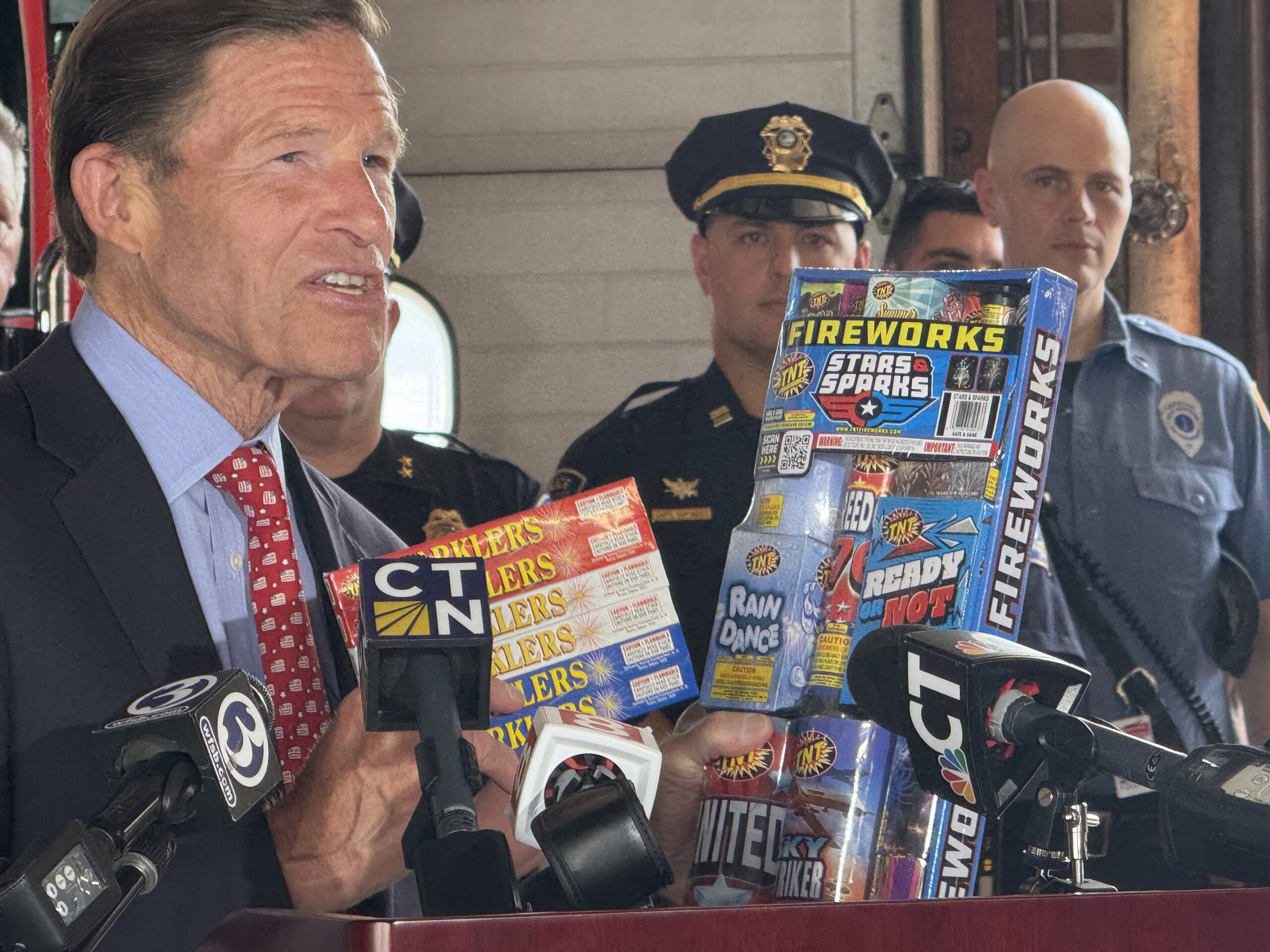West Hartford Food Scrap Recycling Pilot Showing Success in First Few Months

Audio By Carbonatix
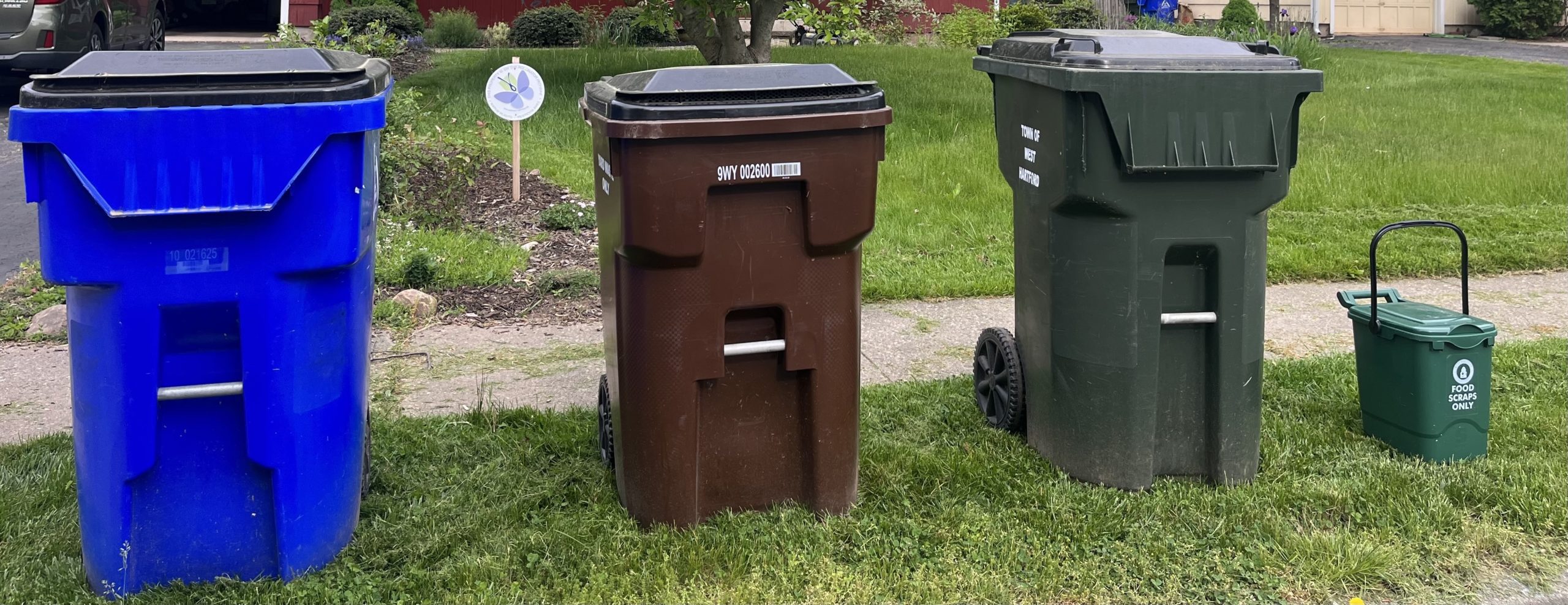
Participants in the food scrap recycling program have been given a small green bin to put at the curb on their trash pick-up days. Courtesy photo (we-ha.com file photo)
West Hartford’s recycling coordinator highlights some of the results of the pilot – underway since May 1 in the Morley neighborhood – to collect food scraps and explore the concept of ‘Pay as You Throw’ for trash collection.
By Katherine Bruns, Recycling Coordinator
Have you heard that West Hartford is one of 18 Connecticut municipalities to have received a Connecticut Department of Energy and Environmental Protection (CT DEEP) Sustainable Materials Management (SMM) grant intended to reduce waste? If you have, here is an update! And if you have not, please keep reading.
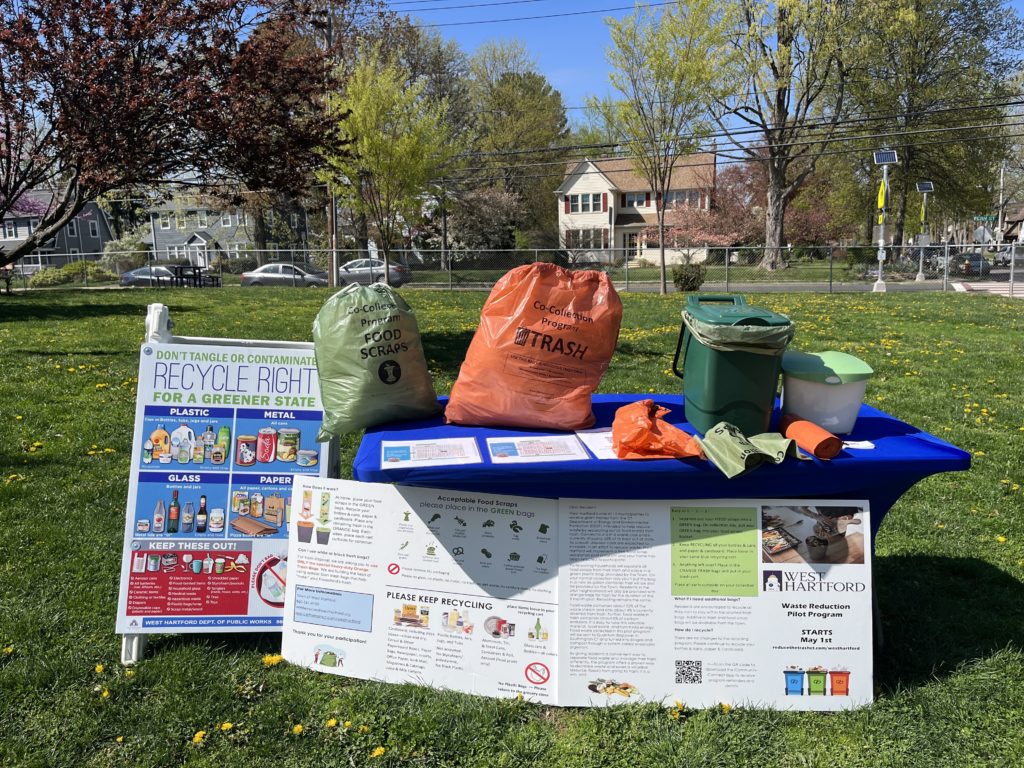
An education campaign was held for the Morley neighborhood prior to the launch of the food scrap recycling and PAYT pilot. Courtesy photo
The CT DEEP grants were awarded to municipalities committed to reducing waste and increasing recycling by adopting innovative waste collection practices and starting conversations around consumption and waste habits. CT DEEP encouraged towns to pilot programs combining two methods proven to reduce solid waste: curbside food scrap collection and Pay as You Throw (PAYT) trash collection. Food scraps are about 25% of what we throw away. PAYT treats trash like any other utility whereby you pay only for what you use, like electricity or water.
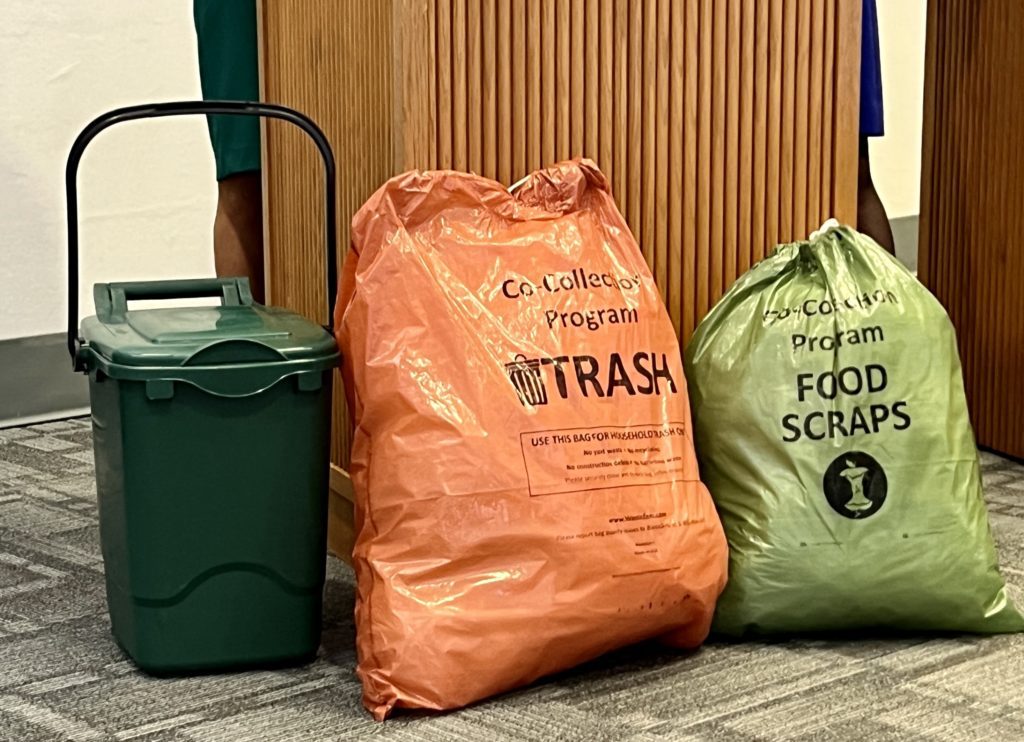
A green food waste container was be distributed to all participants in the food scrap collection pilot, along with 15-gallon orange trash bags and 8-gallon green food scrap collection bags. Photo credit: Ronni Newton (we-ha.com file photo)
Connecticut is in a true waste crisis, and is currently trucking about 40% of its trash out of state – about a million tons of trash a year. This is neither economically nor environmentally sustainable. Simply stated, Americans produce a lot more trash today than we used to. How much more? According to the EPA, the average American threw away 2.7 pounds of trash a day in 1960. This nearly doubled in 2018 to 5 pounds per person a day thanks to the proliferation of single use packaging, convenience culture, wasted food, and fast fashion, and has continued to increase since the pandemic.
This trend will continue, along with associated costs, if habits and municipal waste collection programs are not reformed. PAYT and food scrap collection programs encourage an examination of our relationship with the waste we each produce. We must think about how to consume in a manner that produces less trash in the first place. Remember, we don’t have to recycle or throw away items we don’t buy.
The pilot program, which began May 1, is in the Morley Elementary School neighborhood bordered by Fern Street and Asylum Avenue to the south and north, and Trout Brook Drive and North Quaker Lane to the west and east. Each household was provided a 6-gallon food scrap collection barrel to place at the curb each week on trash collection day, along with enough bags to allow for one green food scraps bag and two orange trash bags per week. The orange bags are intended for the waste remaining once food scraps are collected and after all possible recyclables are taken out.
Remember, there is plenty of material that is recyclable even though it is not allowed in curbside recycling. Some examples are plastic bags, textiles, metals and E-waste. These can be taken to a variety of places including the Yard Waste and Recycling Center. For more ideas on where and what to recycle check out the West Hartford Waste Wizard.
Here are some results, along with some feedback the Department of Public Works has received 16 weeks into the pilot:
- 26 tons of food scraps have been diverted from the waste stream
- 52% of pilot residents are participating in food scraps collection
- 675 households are in pilot
- An average of 8 pounds of food scraps per participating household collected per week
- Residents who were reluctant to separate out food scraps have been surprised at how quickly they adapted
- Participants are amazed at amount of food scraps they collect
- Participants feel more aware of wasted food
- Many reports of noticeable reduction in volume of trash
- Trash no longer smells, and in some cases, there is no need to put it out every week
- Some have said the orange trash bags are too small and green food scrap bags are too big
- Concern over limiting trash to two orange trash bags a week when there are extenuating circumstances like parties, hobbies, house projects. (Remember, in true PAYT you can always purchase more bags if you produce more on a particular week)
- Participants would like biodegradable green bags for food scraps and access to larger orange bags for trash
(Not so) Fun Fact: the average family of four in the US throws away about $1,600 of food a year, according to the EPA.
Note that West Hartford’s food scraps, which are collected by Blue Earth Compost, are taken to Quantum Biopower in Southington, CT, and turned into electricity and compost. ALL foods are accepted at Quantum Biopower, a commercial anaerobic digester in Southington. This includes meats, dairy, and spoiled leftovers in addition to fruits and veggies. Just scrape your plate into the container.
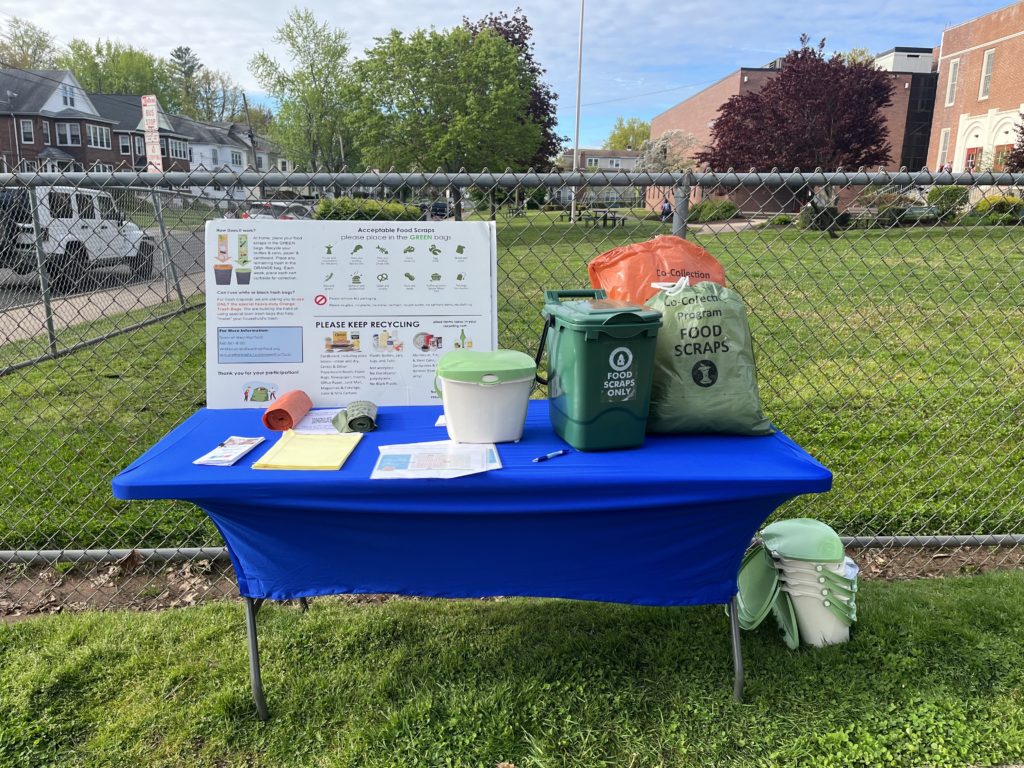
An education campaign was held for the Morley neighborhood prior to the launch of the food scrap recycling and PAYT pilot. Courtesy photo
Stonington, CT started Pay as You Throw trash collection in 1992. This February, with the CT DEEP grant, they added food scrap collection. According to DEEP figures, “Stonington residents produce an estimated 389 pounds of waste per household each year. Across the state, the average amount per household statewide is 740(!) pounds.”
Will West Hartford embrace these effective waste reduction measures town wide and join Stonington as a leader in Connecticut? West Hartford is at an exciting transformational crossroads in waste management. Decisions made today will have a profound economic and environmental impact on future generations.
Thank you to all pilot participants for your great work!
Like what you see here? Click here to subscribe to We-Ha’s newsletter so you’ll always be in the know about what’s happening in West Hartford! Click the blue button below to become a supporter of We-Ha.com and our efforts to continue producing quality journalism.


